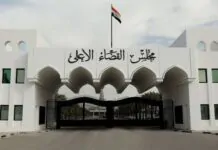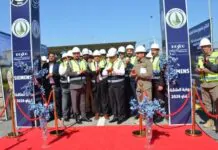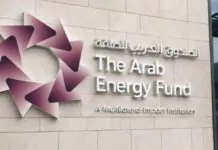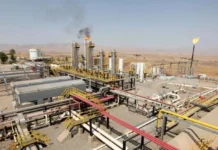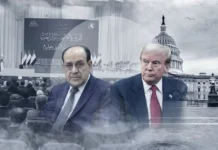Tishwash: Al-Nusairi: Comprehensive banking reform means modernizing and developing banks, ensuring their compliance with international standards, and transitioning to a rapidly growing economy.
Economic and banking advisor Samir Al-Nusairi confirmed that the banking reform project launched by the Central Bank last month in cooperation with the government and the global consulting firm Oliver Wyman was held at a ceremony attended by the Prime Minister.
Al-Nusairi said in a televised interview followed by “Al-Eqtisad News” that the banking reform project aims primarily, within the specified timeframes, to modernize and develop the private banking sector, comply with international standards, transition to a rapidly growing national economy, expand digital transformation, enhance financial inclusion, stimulate electronic payments, strengthen cybersecurity, use artificial intelligence to analyze and ensure the transparency of banking data, create a financial center, and authorize and license digital banks.
He added that it achieves stimulating and sustainable returns for investors, creates a fair competitive environment in the banking market, and restores confidence in the banking sector.
He explained that the private banking sector achieved good business results in 2024, despite 50% of our banks being subject to sanctions and restrictions on the use of the US dollar. The ratio of credit granted to deposits reached 67.9%, which means the banks are moving towards the real work of financing and investing in deposits. The banks’ capital rose to 20 trillion dinars, an increase of 8.7% due to the implementation of the Central Bank’s instructions to raise capital to 400 billion dinars and setting September 30, 2025 as the deadline for increasing the capital of the remaining banks.
Al-Nusairi pointed out that the objectives set for banking reform are in line with the main and sub-objectives of the Central Bank’s third strategy for the years 2024-2026, which comprises 7 main objectives, 24 sub-objectives, and 75 initiatives to achieve these objectives. The Central Bank’s management is working to implement them in accordance with approved policies and programs and in cooperation with relevant authorities. link
************
Tishwash: An economist proposes solutions to address the liquidity shortage in Iraq.
Financial and economic affairs expert Ahmed Abdel Rabbo proposed solutions on Saturday to address the liquidity crisis in Iraq, after the Iraqi government withdrew funds from tax deposits. He pointed out that Al-Sudani’s government needs a firm will to make bold decisions to prevent the country from sliding into a stifling cash crisis.
Abdel Rabbo said in a press statement followed by (Al-Mada) that “after withdrawing 3.045 trillion dinars from tax deposits to cover salaries, the liquidity crisis in Iraq appears more urgent than ever, which requires urgent government action with a balanced financial formula.”\
He added, “Unnecessary expenditures must be rescheduled and non-urgent projects, such as bottleneck projects, postponed to direct resources towards top priorities, and short-term government bonds must be issued to the Central Bank and local banks as a quick internal solution without getting involved in external debt.”
He explained that “among the quick solutions are tightening control over foreign bank transfers, regulating the sale of dollars, restoring confidence in local banks, and launching urgent tax collection campaigns targeting large arrears from companies and importers to boost non-oil revenues.”
The financial and economic expert stressed the need for “immediate diplomatic action with Washington to ensure the continued flow of oil revenues without disruption or delay, in addition to offering savings bonds to citizens with incentives to attract the dormant cash flow outside the banking system.”
Abdel Rabbo concluded by saying, “At such critical moments, Al-Sudani’s government does not need lengthy deliberations, as much as it needs a firm executive will, capable of making bold decisions that preserve the financial balance and prevent the country from slipping into a stifling currency crisis, the repercussions of which could accelerate within weeks.” link
************
Tishwash: The Iraqi economy and the risks of limited diversification
Dr. Haitham Hamid Mutlaq Al-Mansour
The Iraqi economy is experiencing a gap between the government’s efforts to promote growth on the one hand, and the structural challenges that hinder growth and stability on the other. Although Iraq possesses enormous oil wealth, ranking third in the world in oil reserves, its near-total dependence on crude oil exports, which account for more than 90% of general budget revenues, makes it vulnerable to global market fluctuations and hinders the diversification of its production base.
This limits its resilience to external shocks and limits the national economy’s response to reform requirements.
Overall activity indicates that the Iraqi economy is witnessing development in oil production infrastructure, such as joint ventures with international companies in the Majnoon and West Qurna fields, for example. This has led to an increase in total production to approximately 3.5 million barrels per day since the end of 2023, with plans to reach 5 million barrels in the coming years.
This is in addition to improved resource management following the approval of the Oil and Gas Law, which has not yet been fully implemented. Meanwhile, we are witnessing an expansion in investment in reconstruction projects in cities such as Mosul and Basra, supported by foreign investment, particularly from the Gulf, and the development of the Grand Faw Port, a strategic project to stimulate foreign trade.
On the other hand, we see a limited trend toward diversification in a few sectors, limited to limited government plans for developing agriculture and industry, such as supporting local production in the food sector, and the launch of the National Development Strategy 2020-2030, which witnessed weak implementation according to the World Bank’s assessment. In terms of international economic relations, the use of the Chinese yuan instead of the dollar in oil trade with China is noted, as are agreements with neighboring countries such as Jordan, Egypt, and Saudi Arabia to establish joint industrial zones.
But one of the most prominent challenges facing economic growth and economic reform in general is the scourge of financial and administrative corruption. Iraq ranks low on the Transparency International Index (ranked 154th out of 180). According to World Bank estimates, 30% of the budget is eroded annually due to corruption. Meanwhile, the employment index suffers from high levels of unemployment and disguised unemployment. The unemployment rate exceeds 15%, reaching 30% among youth. This is due to increasing levels of public spending, its high contribution to total employment, and the prevalence of disguised unemployment among more than 4 million employees. Inflation is also expected to rise to approximately 7% by the end of 2024.
After oil prices witnessed a decline due to global demand resulting from the slowdown in Chinese growth and the rise in US interest rates, this affected budget revenues and increased the 2024 budget deficit, which was approved at 198 trillion dinars (about $152 billion), with an expected deficit of 48 trillion dinars (24%), increasing reliance on domestic borrowing.
This brought the domestic public debt to 80 trillion dinars (about $55 billion). Due to the inflation rate, which rose to 7.5% in 2024 compared to 6% in 2023, the value of the dinar decreased against the dollar with the increase in demand for imports due to the lack of flexibility of the local production base. Therefore, the Central Bank took measures to raise the interest rate to 7.5%, in addition to raising the legal reserve ratio from 15-18% and tightening controls on dollar transfers to combat smuggling and money laundering.
Not long ago, the Central Bank’s foreign reserves were also witnessing a significant decline, according to the bank’s own statistics. The decline reached $7.5 billion as a result of compensatory sterilization measures to mitigate the decline in dollar supply on the parallel market, posing a threat to the government’s long-term inflation shield.
Given the real distortions in the Iraqi economy that affect the structure of aggregate demand, spending, and investment, with serious repercussions for the business sector, and in light of the limited government interventions and the expected continued decline in global oil prices, one of the important steps to ensure the success of the economic reform process is to emphasize the reduction of rentierism through the following:
Develop a foreign investment strategy in specific, productive sectors, with a clear plan, objectives, and tools for investment, implementation, oversight, and anti-corruption, including the oil, petrochemical, extractive, and mining sectors.
Strengthening the investment strategy by issuing a package of laws that attract foreign investment and implementing real reforms to raise the expected level of marginal capital efficiency, which will directly impact the movement and direction of private capital and increase its productivity in the sectors mentioned in the first point.
Directing oil revenue savings to investments in infrastructure, education, health, housing, industry, and agriculture, and expanding the scope of derivative investments.
Rationalizing public spending policy and taking measures to ensure financial control and financial sustainability of the depleting economic resource, and coordinating with monetary policy to reform the banking sector and facilitate investment financing through banks to achieve stability and growth.
These signals are likely to achieve economic reform in the financial and real markets, and subsequently increase economic growth through financial compensation from investment returns, reducing the general budget deficit, and enhancing the government’s ability to expand non-oil GDP and absorb external shocks.
This will then increase the sustainability of domestic public debt and achieve low and stable inflation. Otherwise, the Iraqi economy will reach a crossroads: either embark on diversification and stability, or continue its dependence on oil, with the risks of rents and instability link


